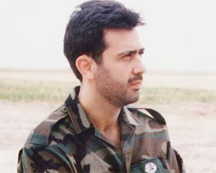BAB AL-SALAM, Syria, (Reuters) – Syrian troops have driven rebel fighters out of two districts of Damascus a week after the insurgents launched a major assault on the capital.

Government troops retook control of the Damascus neighbourhood of Mezzeh yesterday and executed at least 20 unarmed men who they suspected of aiding rebels, opposition activists in the district said.
In Barzeh, members of the Syrian army’s Fourth Division under the command of President Bashar al-Assad’s brother executed several young men during an operation to regain control of the northern Damascus district, a witness and activists said.
Government forces have launched a determined counter-offensive since rebels brought their battle to overthrow Assad to the capital and killed four of the president’s closest associates in a bomb attack last Wednesday.
In a further escalation of a conflict rapidly becoming a civil war, fighting raged around the intelligence headquarters in Syria’s biggest city, Aleppo, and in Deir al-Zor in the east.
Syrian forces regained control of one of two border crossings seized by rebels on the frontier with Iraq, Iraqi officials said, but rebels said they had captured a third border crossing with Turkey: Bab al-Salam, north of Aleppo.
“Seizing the border crossings does not have strategic importance but it has a psychological impact because it demoralises Assad’s force,” a senior Syrian army defector in Turkey, Staff Brigadier Faiz Amr, told Reuters by phone.
“It’s a show of progress for the revolutionaries, despite the superior firepower of Assad’s troops.”
Rebels also seized an army infantry school in the town of Musalmiyeh, 16 km (10 miles) north of Aleppo, and captured several loyalist officers, while others defected, a senior military defector in Turkey and rebel sources inside Syria said.
“This is of big strategic and symbolic importance. The school has ammunition depots and armoured formations and it protects the northern gate to Aleppo,” Brigadier General Mustafa al-Sheikh told Reuters by phone from the town of Apayden on the Turkish border.
REVENGE
The bombardments in Damascus and Deir al-Zor were some of the fiercest yet and showed Assad’s determination to avenge the bomb attack, the most spectacular blow in a 16-month-old uprising against four decades of rule by the Assad family.
Rebels were driven from Mezzeh, the diplomatic district of Damascus, residents and opposition activists said, and more than 1,000 government troops and allied militiamen poured into the area, backed by armoured vehicles, tanks and bulldozers.
Government forces executed at least 20 men, aged approximately 20 to 30, several activists said by phone from Mezzeh.
“Most had bullet holes, one with as many as 18. Three had their hands tied behind their back. Some of the men were in their pajamas. Several had their legs broken or fingers missing. Others were stabbed with knifes,” said Bashir al-Kheir, one of the activists.
The early morning bombardment of the neighbourhood killed three people and 50 others, mostly civilians, were wounded, said Thabet, a Mezzeh resident. “The district is besieged and the wounded are without medical care,” he said.
“I saw men stripped to their underwear. Three buses took detainees from al-Farouk, including women and whole families. Several houses have been set on fire.”
Opposition and rebel sources say the guerrilla fighters in the capital may lack the supply lines to remain there for long and may have to make tactical withdrawals.
The neighbourhood of Barzeh, one of three northern areas hit by helicopter fire, was overrun by troops commanded by P resident Assad’s brother, Maher al-Assad, 41, who is widely seen as the muscle maintaining the Assad family’s Alawite minority rule.
“At least 20 Fourth Division tanks and hundreds of its members entered Barzeh this afternoon,” opposition activist Abu Kais said by phone from the district.
“I saw troops go into the home of 26-year-old Issa al-Arab. They left him dead with two bullets in his head.”
He said people sheltering from the fighting had told him of the summary execution of a 17-year-old, Issa Wahbeh, who was pulled from the shelter and beaten and killed.
Mazen, another opposition activist in Barzeh, said the bodies had been found of four young men who appeared to have been shot at point blank range.
Syrian state television quoted a media source denying that helicopters had fired on the capital. “The situation in Damascus is normal, but the security forces are pursuing the remnants of the terrorists in some streets,” it said.
CRUCIAL ROLE
Maher’s role has become more crucial since Assad’s defence and intelligence ministers, a top general and his powerful brother-in-law were killed by the bomb on Wednesday, part of an assault by rebels seeking to turn the tables in a revolt inspired by Arab Spring uprisings in Tunisia, Libya and Egypt.









